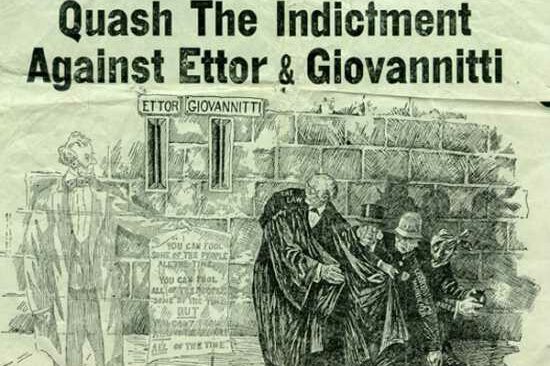Dear Readers,
Martin Luther King Jr. Day, observed on January 19th this year, reminds me of some bits of Black History with an Italian connection:
American Republican politician, Edward Brooke III, died on January 3, 2015 at age 95, in Coral Gables, Florida. In 1966, he became the first African-American to be popularly elected to the U.S. Senate. He was elected to the Senate as a Republican from the state of Massachusetts and defeated his opponent by a landslide vote. He served in the Senate from January 3, 1967 to 1979. His mentor, while in office, was Governor of Massachusetts, John Volpe, who later served as the U.S. Ambassador to Italy.
Edward Brooke III was born in Washington D.C. to Helen and Edward Brooke, Jr. He was raised in a middle class section of the city and attended Dunbar High School, then one of the most prestigious High Schools for African Americans. In 1936, he enrolled in Howard University where he first considered medicine, but ended up studying social and political science. He graduated in 1941 and immediately enrolled in the U.S. Army after the Japanese attack on Pearl Harbor.
Brooke spent five years (1941-1946) as an officer in the Army, seeing combat in Italy during World War II as a member of the segregated 366th Infantry Regiment, and as a captain earned a Bronze Star for saving the lives of 59 Italian partisans operating behind German lines in the Po Valley. In Italy, Brooke met his future wife Remigia Ferrari-Scacco of Genova, with whom he had two daughters, Remi and Edwina.
Following his discharge, Brooke graduated from the Boston University School of Law in 1948.
Prior to winning his Senate seat, Governor John Volpe sought to reward Brooke for his effort, and offered him a number of jobs. Seeking a higher political profile, Brooke accepted the position of chairman of Finance Commission of Boston, where he investigated financial irregularities and uncovered evidence of corruption in city affairs. He was described in the press as having the “tenacity of a terrier”. Brooke parlayed his achievements there into a successful election as Attorney General of Massachusetts in 1962 and was the first elected African-American Attorney General of any state.
After World War II, Brooke sent for Remigia Ferrari-Scacco, the woman he had courted and met in Italy when he served in the U.S. Army (segregated in those days), and she became his young war bride. She spoke no English, but after some thirty years of marriage, learned and was a great campaigner, when she spoke in her own language, Italian, especially among the large Italian-American population in the North End, Greater Boston and Italian voters throughout the state of Massachusetts. After his two young daughters married, the Senator and his Signora split and much divorce dirt was dished, some of it supplied by Generoso Pope and his scandal sheet. The voters were unforgiving and Brooke lost his bid for a third term ithe U.S. Senate.
***
Ethiopia’s Haile Selassie (1892-1975)- “Grazie” to some S.F. Educational ethnic studies info, I can share this with you:
In 1935 Ethiopia was attacked by Italy. Member nations of the League of Nations did not come to the assistance of Ethiopia. Although Haile Selassie took personal command of this 1,000,000 primitively equipped soldiers, he was not able to withstand Mussolini’s 250,000 troops or his airplanes and tanks. In 1936 Haile Selassie went into exile in England, pleading his country’s case. With the aid of the British, Haile Selassie drove the Italians from Ethiopian soil and returned to his people.
A firm believer in the principle of collective security, Haile Selassie made certain that his troops were among the first to go to Korea in 1950.
In 1963, Haile Selassie sat in his palace at Addis Ababa, gradually admitting the winds of change to the country.
Since 1930 Lij Tafari Makonnen has been known to the world as His Imperial Majesty Haile Selassie, King of Kings of Ethiopia, Conquering Lion of Judea and the Elect of God. Selassie sat on the oldest throne in the world.
The history of his country goes back to the days of Solomon and Sheba. Ethiopia was a country with some sense of identity when most of Africa’s new nations were but clusters of tribes and chieftains. Of all the kings who have ruled this ancient land, Haile Selassie is perhaps the most significant, for he has presided over the country’s entrance into the world of the twentieth century.
***






























